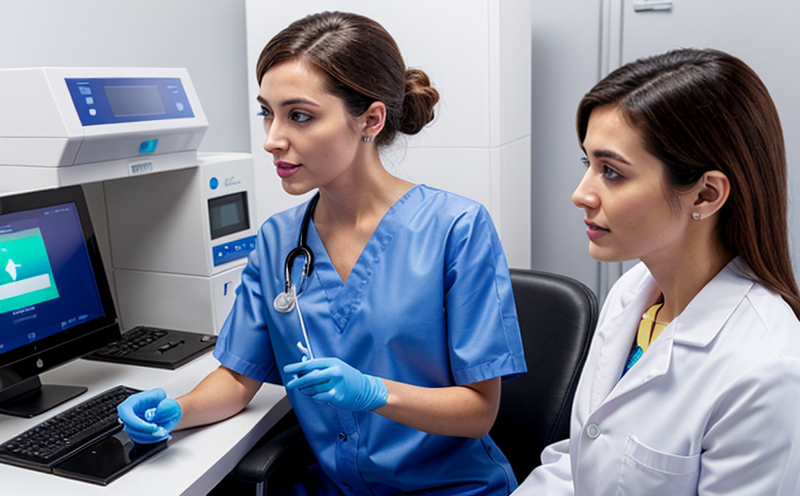PCR Testing for Clostridium botulinum in Food Safety Programs
The presence of Clostridium botulinum, a bacterium that produces potent neurotoxins, can pose significant health risks to consumers. Proper identification and control are critical components of food safety programs. Polymerase Chain Reaction (PCR) testing is a highly sensitive method used for the detection of this pathogen in various food products.
PCR technology offers several advantages over traditional culture-based methods:
- Sensitivity: PCR can detect even trace amounts of Clostridium botulinum, ensuring that no viable cells are overlooked.
- Rapid Results: PCR testing provides results in a fraction of the time required for culture-based methods, allowing faster decision-making and intervention.
- Specificity: The test is highly specific to Clostridium botulinum, minimizing the risk of false positives or negatives.
- Cost-Effective: Despite initial investment in equipment, PCR testing can be more cost-effective over time due to its efficiency and reduced labor costs.
Incorporating PCR testing into food safety programs helps ensure that products are safe for consumption. Compliance with international standards such as ISO 21528 ensures that the testing methods used meet rigorous quality benchmarks.
For R&D engineers, understanding the nuances of Clostridium botulinum detection is crucial to developing innovative food preservation techniques. For quality managers and compliance officers, PCR testing provides a tool for meeting regulatory requirements and maintaining consumer trust. This service supports procurement teams by ensuring that suppliers meet stringent safety standards.
The use of PCR technology in the context of Clostridium botulinum detection has been widely recognized by industry experts and regulatory bodies worldwide. By integrating this testing into food safety programs, organizations can enhance their reputation for producing safe and high-quality products.
In summary, PCR testing is an essential tool in the battle against Clostridium botulinum. Its sensitivity, speed, specificity, and cost-effectiveness make it a preferred choice for ensuring food safety. By leveraging this technology, organizations can protect public health, comply with regulations, and maintain consumer confidence.
Benefits
The use of PCR testing for detecting Clostridium botulinum offers numerous benefits:
- Rapid Detection: Results are available within hours, allowing for prompt corrective actions.
- High Sensitivity: Trace amounts of the pathogen can be detected, ensuring no contamination is overlooked.
- Specificity: The test accurately identifies Clostridium botulinum, reducing the risk of false positives or negatives.
- Cost-Effective: Despite initial investment in equipment, PCR testing can be cost-effective due to its efficiency and reduced labor costs.
These benefits contribute to enhanced food safety programs by ensuring that products are free from harmful pathogens. This not only protects public health but also enhances the reputation of organizations involved in food production and distribution.
Eurolab Advantages
EuroLab is committed to providing top-tier services in PCR testing for Clostridium botulinum. Our advantages include:
- State-of-the-Art Equipment: We utilize the latest technology to ensure accurate and reliable results.
- Trained Professionals: Our team of experts ensures that every test is conducted with precision and care.
- Stringent Quality Control Measures: We adhere to strict protocols to maintain high standards in all our services.
- Compliance with International Standards: EuroLab complies with ISO 21528, ensuring that the testing methods used are of the highest quality.
EuroLab's commitment to excellence and customer satisfaction is reflected in our consistent delivery of accurate and reliable PCR test results. Our services support organizations in meeting stringent safety standards and maintaining consumer trust.
Environmental and Sustainability Contributions
The use of advanced testing methodologies like PCR not only enhances food safety but also contributes to environmental sustainability:
- Eco-Friendly Testing Methods: By ensuring that harmful pathogens are detected early, PCR helps prevent contamination and waste associated with reprocessing or discarding contaminated products.
- Efficient Resource Use: The rapid detection enabled by PCR minimizes the need for extensive testing processes, leading to more efficient resource utilization.
- Reduced Carbon Footprint: By improving food safety and reducing the risk of recalls, PCR helps minimize the environmental impact associated with product rejections and replacements.
EuroLab's services are designed to support organizations in their sustainability goals by ensuring that they can confidently produce safe and sustainable products. This aligns with broader global efforts towards responsible production and consumption practices.





